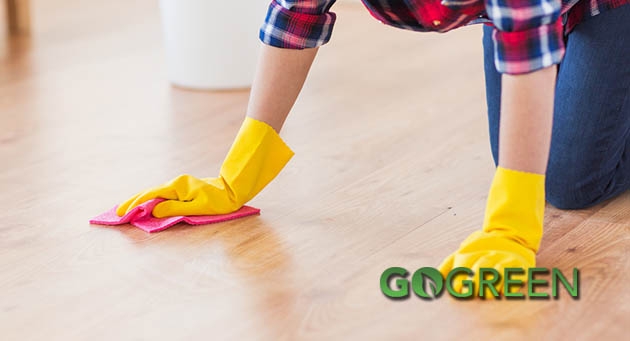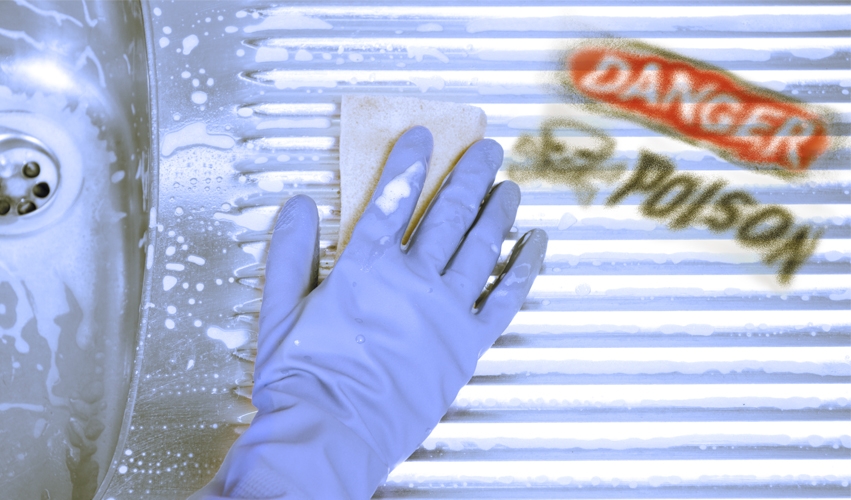
A clean house isn’t really a clean house unless the floor is spotless. The floor picks up everything that you bring in from outside, everything you drop when you’re cooking and everything else in between. Plus what if you have little ones? Your pets track in goodness knows what and if you have other little ones like babies and toddlers, you want floor really clean — like hospital clean.
In saying that, you may tempted to completely annihilate your floors with cleansers, disinfectants and everything science has to offer but many cleaners are loaded with harmful chemicals. You don’t want your family to come into in contact with that stuff and those chemicals can build up in your home over time, which can have a negative effect on the air quality in your home.
Toxic chemicals in household floor cleaners you should avoid chlorine, ammonia and volatile organic compounds that create toxic fumes that can build up in your home. Ammonia can burn the skin and its fumes can cause serious eye and nose irritation, while chlorine fumes can lead to respiratory problems over time.
The harmful effects of chemical cleaners are even more dangerous for small children, whose developing bodies are more susceptible to irritation and damage from large doses of chemicals in their environment. This is especially true for floors, as babies and toddlers have so much direct contact with these surfaces on a daily basis.
You can make effective and natural cleaning products for your floor with common household items you can find in your kitchen. Try some of these ideas below to reduce your dependence on chemical cleaners in your house.
For sealed hardwood, linoleum and tile surfaces, a mopping solution doesn’t have to be filled with chemicals to clean and disinfect. Vinegar is a time-honored cleaning solution for many household purposes — to mop hard floors, simply add white vinegar to a bucket of warm water — no rinsing required. For light cleaning, one cup per gallon works well, but you can fill up to half your bucket with vinegar for major disinfecting. The smell dissipates quickly but if you really hate it, try lemon juice instead.
For wood floors, you can add a few tablespoons of olive oil to your mopping bucket to help shine up your floorboards. You can also remove scuff marks by sprinkling some baking soda onto a sponge and scrubbing the scuff marks away.
At Go Green, we’re not just a cleaning company. We’re your partners in creating a cleaner, healthier, and more sustainable environment for your business in Edmonton.
(780) 437-1011At Go Green, we’re not just a cleaning company. We’re your partners in creating a cleaner, healthier, and more sustainable environment for your business in Edmonton.

With over 40 years of combined experience in the field of facilities services, We offer our clients top quality cleaning and maintenance services with high standards, and we are committed to only using environmentally friendly cleaning products. Read more below to learn about touch point cleaning, and why keeping your spaces clean is important to your health.
Read More
Typical household cleaners are on the top of the list of dangers in our homes. They cause indoor air pollution, which means many of us will suffer from skin, respiratory and eye irritation. Even if you leave your windows open and turn your bathroom fan on, you are still inhaling and exposing yourself to these chemicals.
Read More